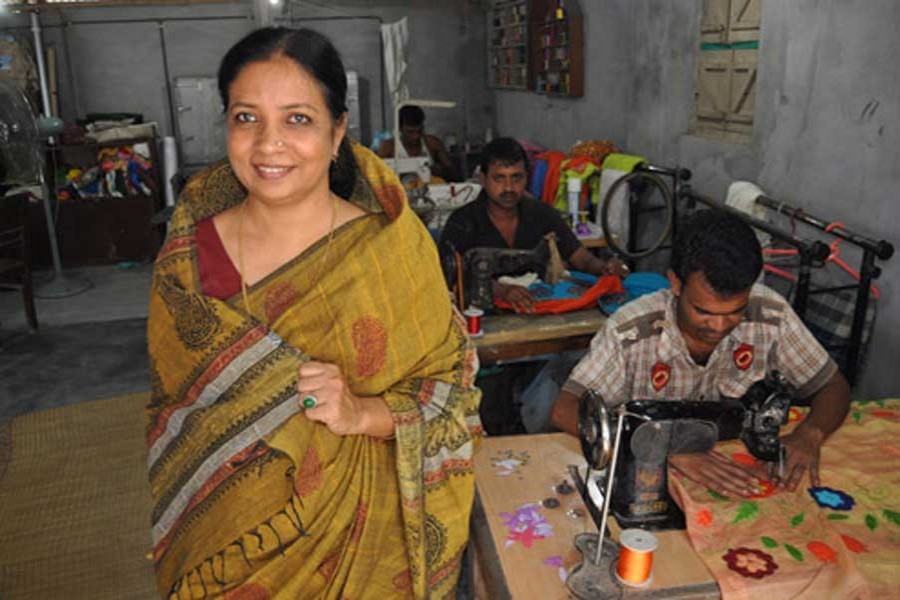The National Board of Revenue (NBR) early this month floated the idea of greater access for the women entrepreneurs to collateral-free loan. In a pre-budget meeting with the Bangladesh Women Chamber of Commerce and Industry (BWCCI) and a few other umbrella trade bodies, it suggested that women entrepreneurs should take up their case of access to loan with the Bangladesh Bank, the central bank of the country. It has the ultimate say on the issue. The driving argument behind the NBR's stand is that the rate of loan-default is minimal among women.
From the side of the BWCCI, a number of proposals were placed. These included continuing the billion-taka fund provision in the budget for women entrepreneurs as in last year, three-year tax holiday, and waiving of value-added tax and other taxes on seminars, workshops and trade fairs for women entrepreneurs. Other proposals from the meeting included raising the tax-ceiling for women entrepreneurs.
Apart from far lesser degree of loan-default, the NBR has taken stock of the fact that some women entered trade and industry under compelling reasons like divorce and widowhood. So, there is a benign social angle to it; one could almost say it touches on CSR, too. Here the long and well-known experience of Grameen Bank and BRAC can be mentioned. They preferred women borrowers who took micro- or group-level self-employment to a new height of women's general uplift. In addition, the lending institutions were rewarded with high rates of timely recovery. However, while these organisations and other NGOs mainly worked with the rural poor and disbursed micro-credit, the NBR's emphasis on greater access to loan for women entrepreneurs under favourable terms and conditions aims at a greater outreach to women entrepreneurs in urban and semi-urban areas. Breaking new ground will be important in keeping with a thrust on women's empowerment in predominantly socio-economic terms.
The Bangladesh Bank can step in to set the tenor for grant of collateral-free loans to women. In addition to start-up finances, the potential entrepreneurs will need guidance from incubation of a project to its implementation. Market counselling will be essential as well. The Bangladesh Bank's portfolio already has some avenues for women borrowers. The good name that women entrepreneurs have earned for themselves need now be recompensed with greater endowment of facilities. It would surely help create a new breed of business people who can be relied on and be looked upon with high hopes as they make the journey to create a fair share of jobs and wealth.
The NBR meeting brought out the information that in this pre-budget phase of the fiscal year, steps for women entrepreneurs would be gladly accepted by the government. As Bangladesh makes progress, now is the time for the government and the central bank to join together to take further steps towards a pro-women entrepreneurial dispensation and make bold decisions to bring out the best in half of the population.


